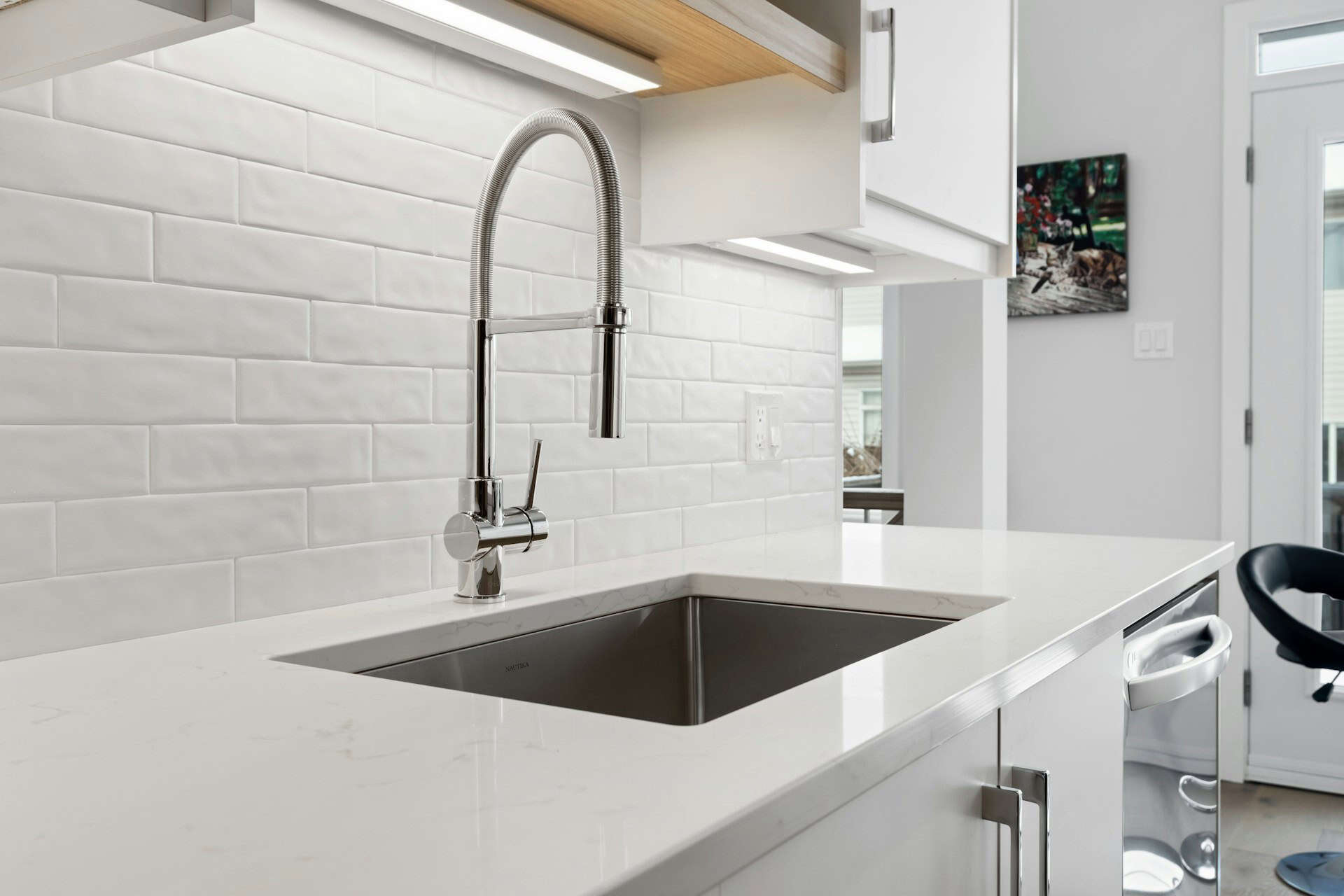
Question: Does Kitchen Plumbing Need to Be Vented?
Answer: Yes, kitchen plumbing needs to be vented. Vents allow proper drainage and prevent sewer gases from entering the home, maintaining safe and efficient plumbing.
Understanding Kitchen Ventilation
Proper ventilation plays a vital role in your kitchen’s plumbing system. It prevents slow drainage, foul odors, and potential health hazards. This article explores the importance of kitchen plumbing ventilation and answers the common question: Does kitchen plumbing need to be vented?
Kitchen Plumbing and Venting
Kitchen plumbing requires venting. Vents allow air to enter the drainage system, equalizing pressure and facilitating proper water flow. Without vents, wastewater can create a vacuum, hindering drainage and potentially drawing sewer gases into your home.
Click here for more information on kitchen refacing Toronto
Related Article: What Happens if a Kitchen Sink Doesn’t Have a Vent?
Related Article: Do I Need a P-Trap Under My Kitchen Sink?
Signs of Inadequate Kitchen Venting
Several signs indicate a problem with your kitchen ventilation system. Recognizing these signs helps address the issue promptly. These signs include gurgling drains, slow draining sinks, and unpleasant sewer odors. If you notice these issues, contact a qualified plumber to inspect and repair your ventilation system.
Gurgling Drains:
Trapped air in the drainpipes causes gurgling sounds as water flows.Slow Drainage:
Inadequate venting can lead to trapped air pockets, restricting water flow and causing slow drainage.Sewer Odors:
A properly functioning vent system prevents sewer gases from entering your home. Foul odors indicate a venting problem.
Consequences of Ignoring Ventilation Problems
Ignoring kitchen ventilation problems can lead to serious issues. These issues include blocked drains, sewer backups, and health hazards from sewer gas exposure. Addressing ventilation problems promptly can prevent costly repairs and protect your family’s health.
Blocked Drains:
Untreated ventilation problems can exacerbate existing drain clogs and lead to complete blockages, requiring professional intervention.Sewer Backups:
In severe cases, poor venting can contribute to sewage backing up into your kitchen sink, creating a significant sanitation issue.Health Hazards:
Sewer gas contains harmful substances that can cause respiratory problems and other health issues if inhaled.
Maintenance and Prevention
Regular maintenance helps keep your kitchen vents clear and functioning efficiently. Simple steps like pouring hot water down the drain can help prevent grease buildup. Avoid pouring grease or oil down the drain. Consider using a drain strainer to catch food particles. These preventative measures help maintain proper ventilation and prevent future problems.
Hot Water Flush:
Regularly flushing your drains with hot water can melt away grease buildup and prevent clogs.Avoid Grease and Oil:
Never pour grease or oil down the drain, as these substances solidify and contribute to blockages.Drain Strainers:
Use drain strainers to catch food particles and other debris that can clog the drain and impede proper venting.Professional Inspections:
Schedule periodic plumbing inspections to identify and address potential ventilation issues before they escalate.
DIY vs. Professional Help
While minor maintenance tasks can be DIY projects, more complex ventilation issues require professional expertise. Attempting complex repairs yourself can potentially worsen the problem. Contacting a qualified plumber ensures the job gets done correctly and safely. A plumber possesses the tools and knowledge to diagnose and resolve any ventilation issue effectively.
Conclusion
Proper kitchen plumbing ventilation is essential for a healthy and functioning kitchen. Understanding the importance of vents, recognizing signs of problems, and taking preventative measures helps ensure your kitchen drainage system works efficiently and safely. While some maintenance can be handled with DIY methods, consulting a qualified plumber is always the best course of action for more serious ventilation problems. If you suspect a ventilation issue in your kitchen, don’t hesitate to contact a professional for prompt and reliable service.

Blue Malue Get in touch with Blue here.
